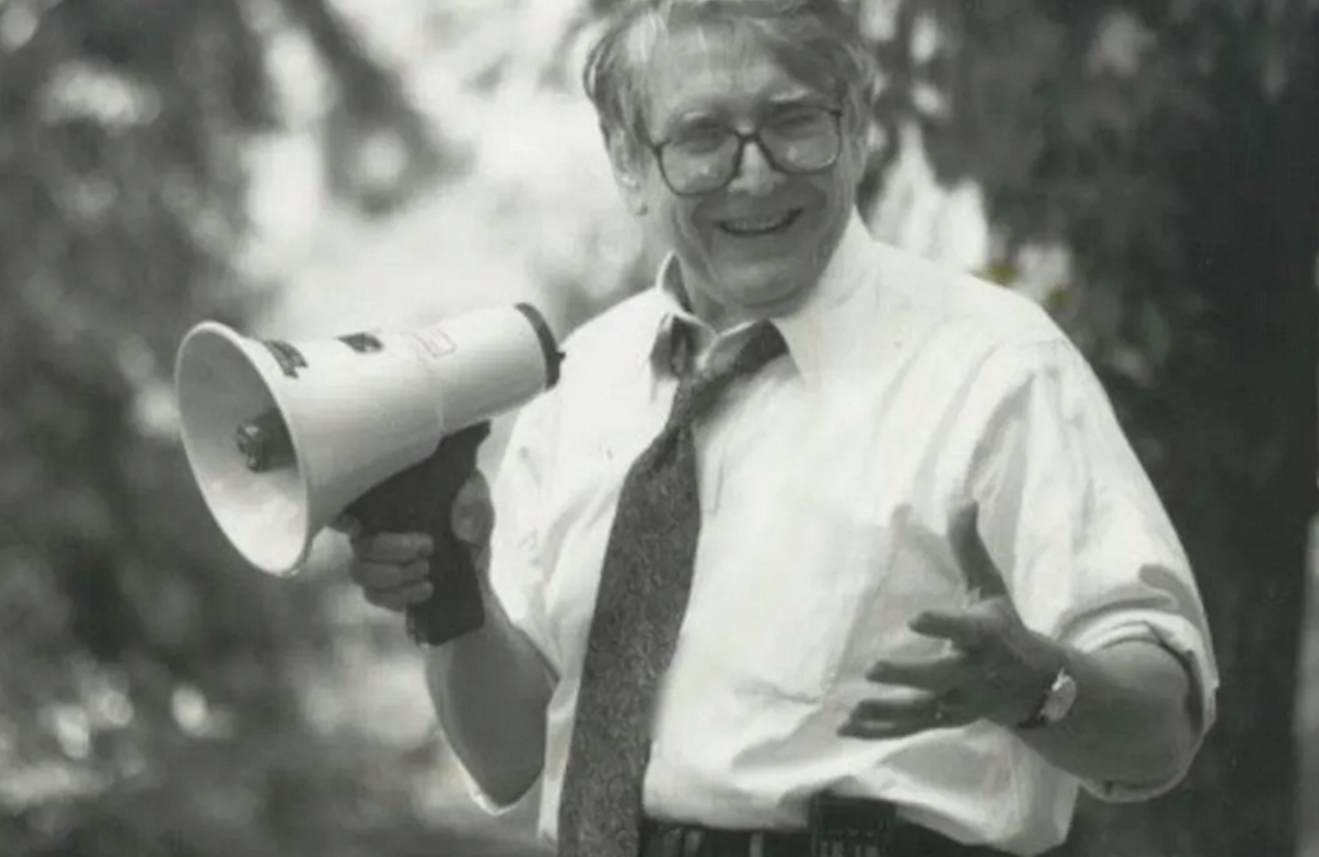By Lynn Burnett
Quentin Young was a White doctor who used his medical expertise to support racial justice causes. Born to Jewish immigrants from Eastern Europe in 1923, Quentin was deeply impacted as a child by witnessing the poverty of the Great Depression… not only in his hometown of Chicago, but especially in the rural areas where his grandparents lived in proximity to Black sharecroppers. Before pursuing medicine, his early moral impulses led him to consider becoming a rabbi. He dropped out of the University of Chicago when the United States joined World War II, for the explicit purpose of fighting fascism, and continued his studies when he returned from the war.
Quentin became deeply concerned by racial disparities in the medical field, as well as by White supremacist violence. In the 1950s he campaigned to desegregate Chicago’s hospitals. During the civil rights movement, he helped found the Medical Committee for Human Rights, which sent doctors to treat civil rights workers in the South… tending to freedom riders, victims of racist attacks during the violent Freedom Summer, and those who were beaten at Selma. When Martin Luther King led a campaign to challenge racialized poverty in Chicago, he was struck in the head by a large rock. Quentin Young, who had been marching beside King, was the doctor who treated him… and who continued to be his personal physician. During the 1968 Democratic National Convention, the Medical Committee for Human Rights treated Black Panthers who had battered by police during protests, as well as anti-Vietnam War protesters. Quentin also helped the Black Panthers and the Young Lords set up their community health clinics during that period. For such efforts, the notorious “red squad” of the Chicago police department – which surveilled and terrorized social justice workers – monitored Quentin closely. So did the FBI… for over 30 years.
Quentin Young continued to advocate for just, equal healthcare for decades. In the 1980s he became the nation’s leading voice for single-payer health care, arguing that it was no less feasible than Medicare and Social Security. Private health insurance companies, in his mind, were motivated by profits rather than healing, and perpetuated unequal and unjust healthcare. In the 1990s, Quentin met Barack Obama, and became his personal physician. He was greatly disappointed when Obama failed to pursue the single payer healthcare option. Quentin Young passed away in 2016.
Additional Resources
Books
Quentin Young: Everybody In, Nobody Out: Memoirs of a Rebel Without a Pause.
Articles
NPR obituary.
NYT obituary.
Washington Post obituary.
Wikipedia entry.
